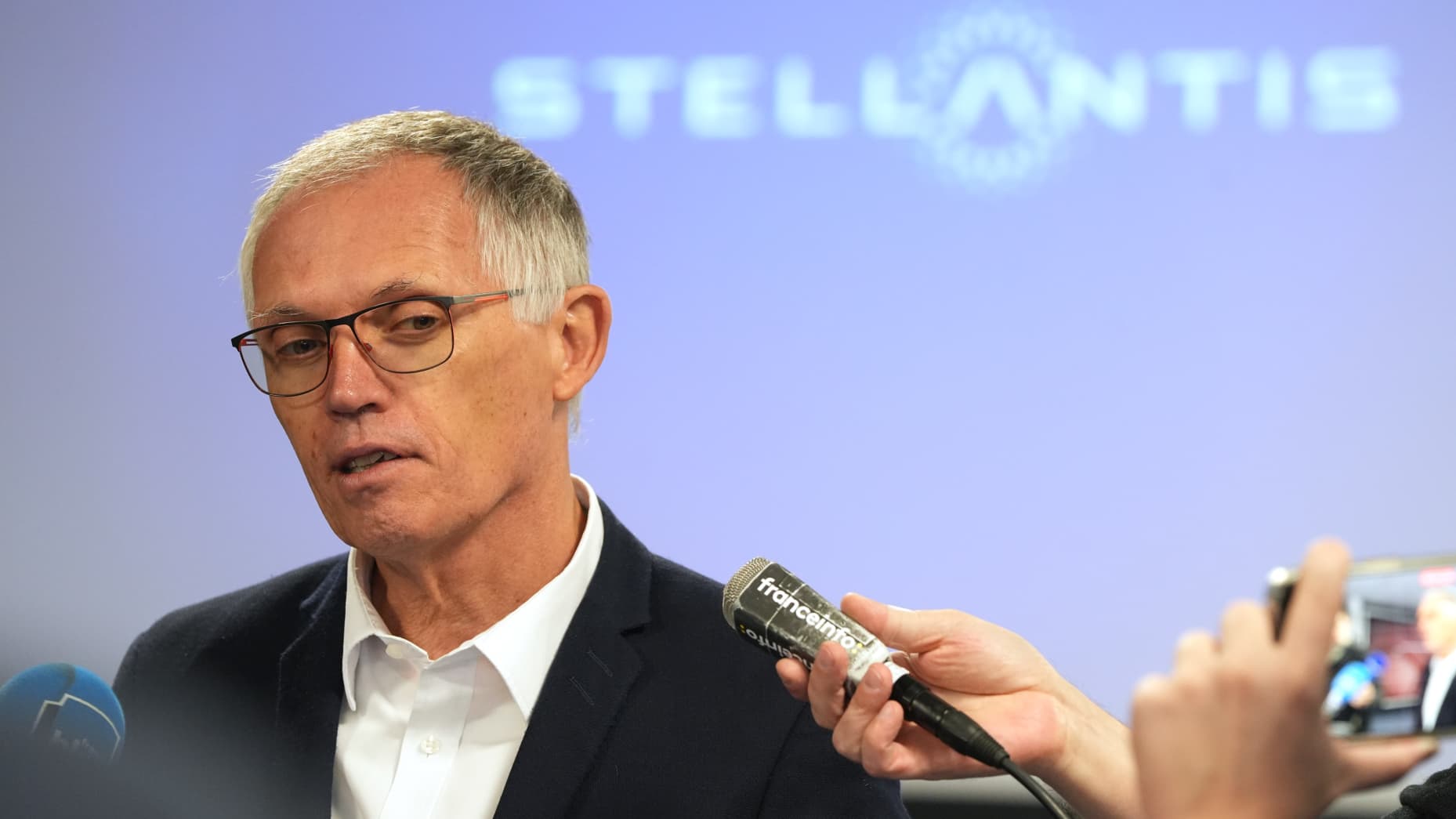Carlos Tavares, the prominent CEO of Stellantis, has unexpectedly resigned from his position, marking a sudden and dramatic leadership shift for one of the world’s largest car manufacturers. Stellantis, the parent company of major automotive brands like Vauxhall, Jeep, Fiat, and Peugeot, now faces a leadership vacuum at a time of significant internal and external challenges. The resignation is effective immediately, leaving the company without the seasoned strategist who helped shape its global presence.
The announcement follows a turbulent year for Stellantis, marred by financial setbacks and operational uncertainties. Just weeks prior, the company unveiled plans to close its Vauxhall van manufacturing plant in Luton, a move threatening 1,100 jobs. This decision not only raised alarms among employees and local communities but also drew criticism from industry observers, who questioned Stellantis’ long-term commitment to its operations in the UK. Coupled with a profit warning issued two months ago, these developments have added to the growing scrutiny of the company’s strategic direction.
Henri de Castries, Stellantis’ senior independent director, commented on Tavares’ departure in a carefully worded statement. He acknowledged that recent differences in vision between the board and the CEO had culminated in the decision to part ways. While the exact nature of these differences remains undisclosed, the statement hints at underlying tensions within the company’s leadership at a time when cohesive strategy is critical.
Carlos Tavares’ tenure at Stellantis has been nothing short of transformative. A veteran of the automotive industry, Tavares first gained recognition for his leadership at PSA Group, where he successfully turned the French automaker into a profitable enterprise. His strategic acumen was instrumental in the landmark 2021 merger between PSA and Fiat Chrysler, creating Stellantis as a global automotive powerhouse. Known for his pragmatic approach to cost management, Tavares garnered both admiration and criticism for his decisive measures, which often included difficult decisions about workforce reductions and operational restructuring.
In the UK, Tavares became a polarizing figure, frequently casting doubt on the future of Vauxhall’s domestic operations. His public statements linked the viability of these facilities to external pressures such as Brexit and government mandates for electric vehicle production. These comments, while rooted in strategic concerns, sparked debates about Stellantis’ commitment to its historical markets and workforce.
Stellantis’ financial struggles have been a mounting concern under Tavares’ leadership. The company has experienced declining sales and profits throughout the year, with its share price tumbling by 40% since January. These economic challenges appear to have eroded confidence in Tavares’ ability to steer the company through turbulent waters, potentially influencing the board’s decision to accelerate his exit.
Interestingly, Stellantis had already begun planning for a leadership transition. In September, the company announced its search for Tavares’ successor, indicating that succession planning was well underway. However, his sudden resignation has expedited the timeline, leaving Stellantis reliant on an interim executive committee led by Chairperson John Elkann until a new CEO is appointed, which is expected to occur by mid-2024.
This departure raises pressing questions about Stellantis’ immediate future. The company now faces the dual challenge of stabilizing its operations while navigating the broader shifts in the automotive industry, including the transition to electric vehicles and the pressures of global economic uncertainty.









